
6 Benefits of Visualization for Swimmers
Wondering what visualization can do for your swimming? Here are some evidence-based benefits of visualization for swimmers for more confidence, less choking, and even better technique.
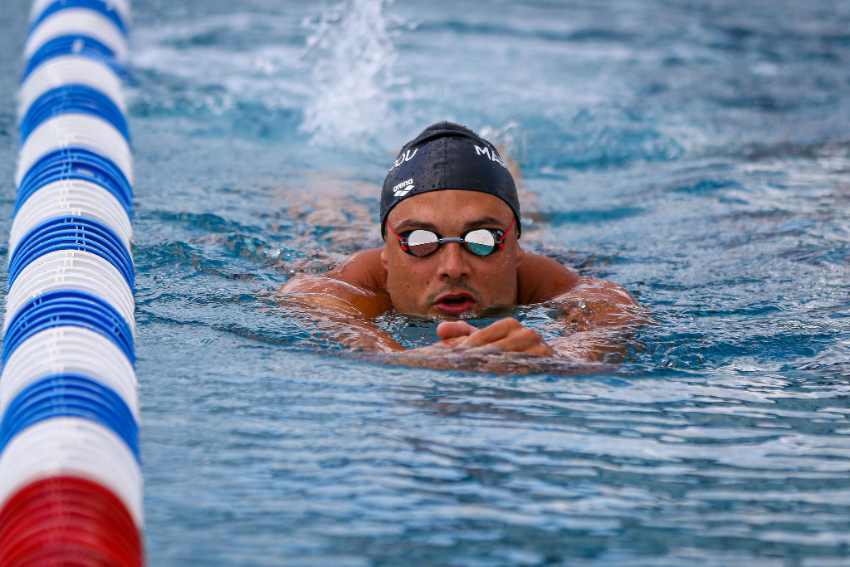
Swimmers have an unbelievable capacity to get better when they practice correctly.
While most swimmers will solely view effort as the barometer of a successful swim practice, they don’t always use the right tools to ensure they are getting that high-grade effort when they dive into the water each day at practice.
Consistently better-than-average swim practices start (and end) with using the right mental habits.
For most swimmers, it’s not that they don’t want it enough, or that they aren’t putting in the effort, but rather, that they aren’t using the right tools and habits to get the most of themselves each day in the water.
Here are some sample mental habits that you can use to start training at a higher level, more often.
Let’s dive right in.
Swimming gives us the opportunity for an almost endless number of measurements: yards swum, yards at race pace, weekly yardage, average pace, stroke count, stroke rate…
There’s so much that can be measured that getting analytical with your swimming can rapidly become overwhelming.
This season, choose a couple of things that really matter to your swimming and track ‘em.
Some key things could include: Percentage of practices made. A grade of your effort each day at practice. Number of dolphin kicks off the wall during the main set. And so on.
Ultimately, the things we measure are the things we spend our energy and focus on. It’s the things we work to improve. It’s the room in our brains where our thoughts spend a majority of their time.
And better yet, when we measure the things that matter, we can see first-hand with completely unfogged goggles whether we are getting better or worse in the pool.
Swim practices and main sets can drag on. One way to “distract” yourself and keep your mind squarely planted in the present and on your swimming is to count your strokes each length.
I’ve clacketty clacked on the keyboard at length both in the newsletter and on the blog about the importance of counting your strokes. Helps you swim more efficiently. Gives you something to focus on each length. And perhaps most awesomely, counting your strokes keeps you present.
The natural tendency when doing a long workout or set is for the mind to wander. Counting your strokes won’t completely cut out the mental wanderings (What should I make for dinner? Is my butt crack hanging out the back of my suit?) but it will guide you back to the present so that you can make the most of each lap in the water.
Pop quiz: Which lap of swim practice is the hardest?
The first one.
For a lot of swimmers, getting their posterior into the water is like pulling teeth. But once they get going, and once their stroke comes to them, and they get warmed up, the resistance subsides, and they start to get after it.
This resistance isn’t unique to the beginning of practice—it presents itself at the beginning of a hard set, too.
So what are some ways to lower your resistance when things feel hard?
For me, creating more “ends” has always been my best ally.
Instead of thinking ahead to the final rep, think of the end of the next lap or rep as the “end.”
Committing to doing one rep. Committing to swimming one lap as fast as possible. Committing to doing the first 100 of a set of 30x100s best average and reassessing from there.
The negotiations and mental gymnastics we have to perform to overcome our own resistance can feel exhausting at times, but using this sneaky backdoor into the hall of better effort is a time-tested and proven way (see: instigation habits) to get things rolling at a level where improvement happens.
Last year I did a swim workout that included the classic 30×100 best average. Not a fun set in the pleasurable sense of the word.
3,000m of all-out swimming.
Getting through it, and more importantly, swimming at an envelope-pushing level, required lying to myself the whole way. Committing to the first one, and then each subsequent rep: “Okay, do one more as fast as possible and see how we feel.”
You know you’re lying to yourself, but this strategy works as it keeps you from thinking about all the other reps.
We already talked about the importance of measuring the things that matter. The accountability that comes from doing this is key.
The other part of holding yourself accountable for improvement in the water comes with soliciting feedback from your swim coach.
Studies on deliberate practice and high performers have repeatedly found that coaches play a huge role in your development (perhaps this seems obvious, but it is a reminder that you don’t need to do everything by yourself).
I’ve swum and worked with swimmers who’ve brushed off asking for more feedback, not wanting to bother or inconvenience their coach.
But your coach wants you to succeed. And it’s not always obvious to them how badly you want to get better.
Ask how you can be better.
Not only will you get immediate feedback, whether it’s technique, attitude, nutrition, strength training, but you will also be sending a five-alarm signal to your coach that you want to be held accountable to a higher standard.
The best coaches I had did far more than just tell me what and how to swim. They kept me accountable, pointed out things I could do better, tempered my moments of I-want-improvement-right-now, and helped me track progress over the course of the season.
Ask them how you can be better. And do it regularly.
Long-time readers will have seen this one coming. About as fast as the bulkhead when you are getting towed on a stretch cord by three teammates and wearing fins.
Having a simple, clear, and unique daily process is the ultimate game-changer for your swimming and your mindset.
If you are the kind of swimmer who worries excessively about their swimming (My practice this morning was no good, am I not going to make state this year now?), having a daily process gives you the ultimate refresh tool.
See also: This is How Powerful a Process-Based Mindset Can Be in the Pool
Pick a handful of things you are going to do to the best of your ability each day at the pool. No more. And not significantly less. (3-5 is ideal.)
Some classic examples I’ve used in the past with swimmers include:
Your daily process should include only things you control, giving you a daily spoonful of confidence.
Your daily process should be as clear and simple as possible.
And your daily process helps launch you towards your big goal without obsessing about it.
Better mental habits won’t turn you into an Olympic champion overnight, but it does something almost as crucial…
It helps you train like one, which is a completely unavoidable prerequisite for dropping the performances of your dreams on race day.
Did any of the above mental habits create an “ah-ha” moment for you? Have you used any of them in the past?
Today when you step onto the pool deck, ask yourself if you are using the right mental habits to get the most of yourself and your time in the water.
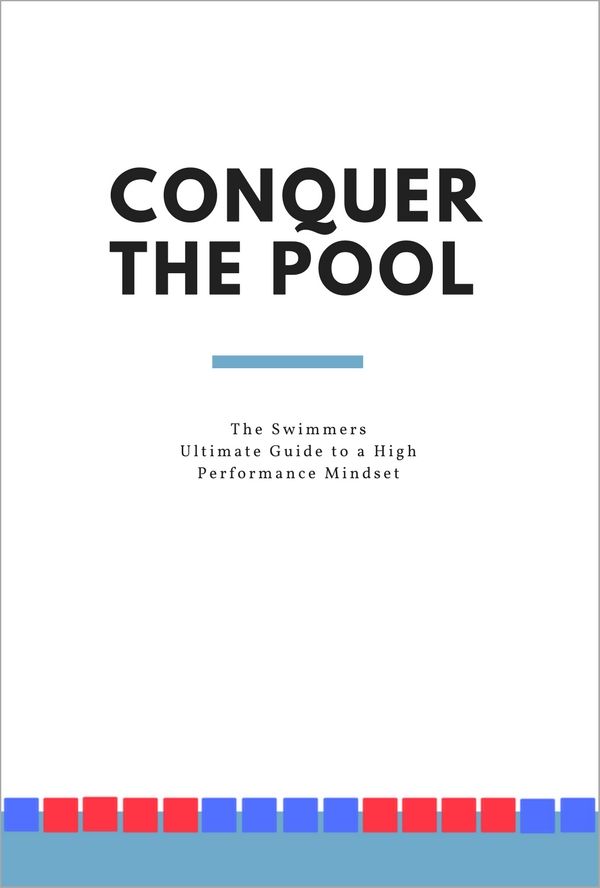 Mental Training for Swimmers (FINALLY) Made Simple
Mental Training for Swimmers (FINALLY) Made SimpleWhether you are tired of choking on race day, want to finally conquer your mindset so that you can give your PB’s the beating they deserve, or want to develop a killer game plan for your mindset, Conquer the Pool is your ticket to faster swimming.
“This is the best book I’ve ever seen concerning mental training.” — Ray Benecki, Head Coach, the FISH Swim Team
Used and trusted by some of the top clubs and swimmers on the planet and written with the feedback of 200+ head coaches, Olympians, former world record holders, and NCAA champions.

Olivier Poirier-Leroy Olivier Poirier-Leroy is the founder of YourSwimLog.com. He is an author, former national level swimmer, two-time Olympic Trials qualifier, and swim coach.
✅ Free shipping on Orders over $49
✅ Price Match Guarantee
✅ Best selection of gear for training and competition
✅ Fast and Easy Returns

“This is the best book I have ever seen concerning mental training.” — Ray Benecki, Head Coach, The FISH Swim Team


Wondering what visualization can do for your swimming? Here are some evidence-based benefits of visualization for swimmers for more confidence, less choking, and even better technique.

Ready to uncork some best times at your next swim meet? Here’s what you need to know to prepare for a swim meet.

The right mental skills can help you unlock faster swimming on race day. Here is a look at the right skills to use for competition.
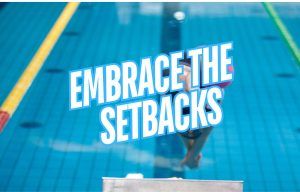
Frustrated with setbacks in the pool? Here are some tips for improving your ability to embrace setbacks and swim faster.
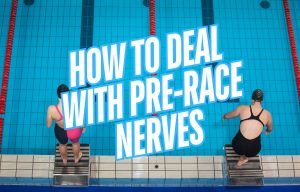
Struggling to swim fast under pressure? Here are some tips for how to manage pre-race nerves on race day.
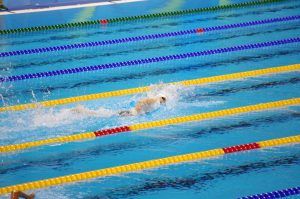
Swimmers often find themselves stuck with doubt when it comes to doing tough things in the water. Here’s a simple question to ask when you find doubt and uncertainty stopping you from excellence.
SITE
SHOP
GUIDES

LANE 6 PUBLISHING LLC © 2012-2025
Join 33,000+ swimmers and swim coaches learning what it takes to swim faster.
Technique tips, training research, mental training skills, and lessons and advice from the best swimmers and coaches on the planet.
No Spam, Ever. Unsubscribe anytime.
